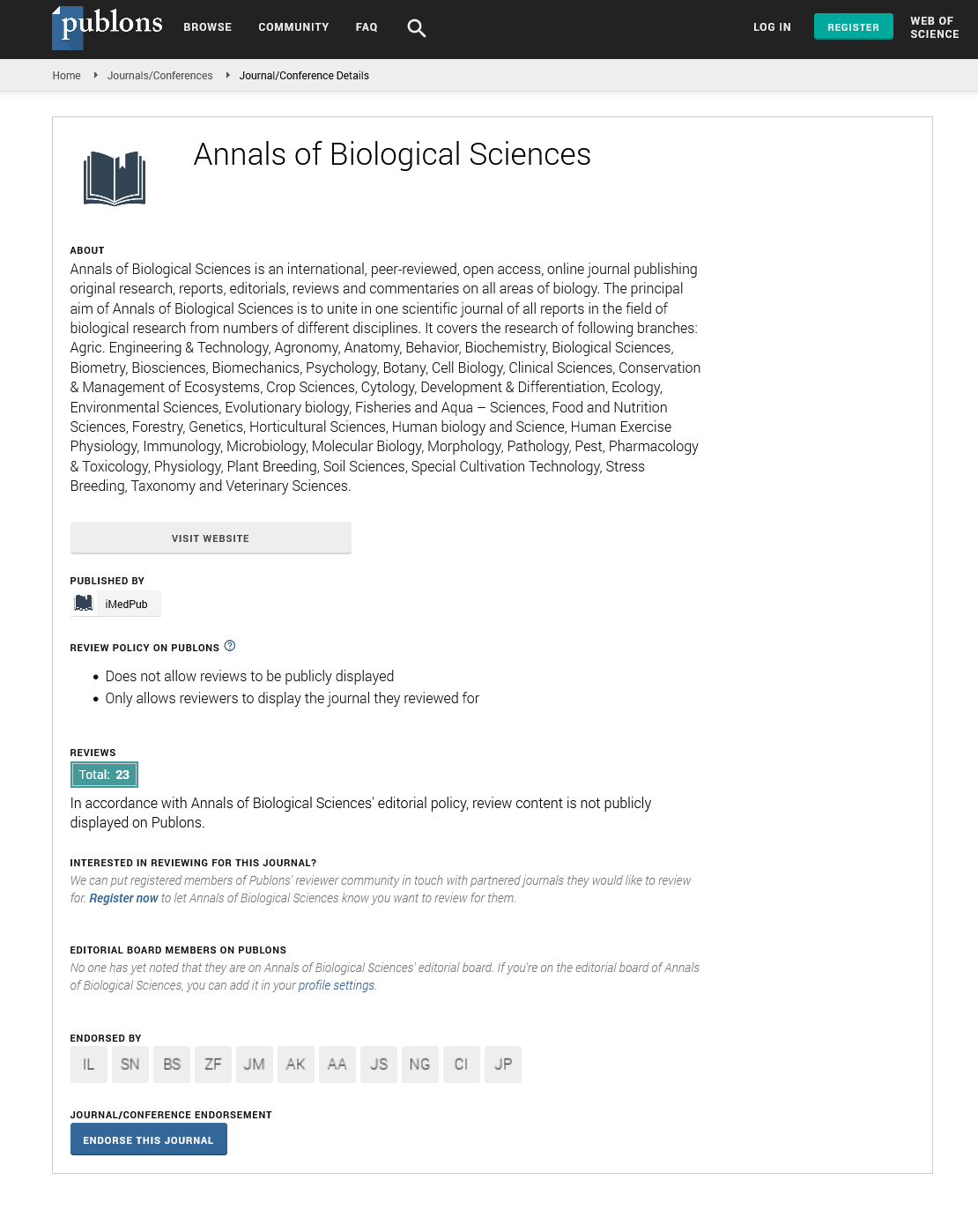ISSN : 2348-1927
Annals of Biological Sciences
Abstract
Epidemiology and Molecular Characterization of Trypanosome Species in Livestock Ruminants in the Gambia
African Trypanosomes cause sleeping sickness in humans or Nagana in animals. Records of the incidence of trypanosomes in cattle for the period of 2010-2016 at International Trypanotolerant Centre (ITC) in the Gambia was computed. Blood samples of 384 cattle, 42 Goat and 59 Sheep from two regions in the Gambia, Central River Region (CRR) and Lower River Region (LRR) were analyzed microscopically in the Gambia before transferring them on FTA whatman filter paper and then they were transported to Nigeria for further analysis. Using specific primers, the blood samples were also molecularly analyzed for trypanosome ribosomal DNA and selected amplicons were sequenced. Results show that T. vivax was the predominant trypanosome species from 2010-2016, closely followed by T. congolense and T. brucei brucei in only few cases. The trypanosomes were more frequently isolated in the last three months of the calendar year (October-December). Microscopy result in cattle showed a prevalence of 1.56% while molecular analysis on the other hand showed a higher prevalence of 12.5%. This is predominantly was made up of T. congolense kilifi (2.6%), others being T. brucei brucei (1.3%), T. congolense savannah/forest (0.52%) and T. vivax (3.65%). There were also cases of mixed infection (4.43%). In both sheep and goats, microscopy and Polymerase Chain Reaction (PCR) results gave a prevalence of 1.7% and 0% respectively. There is seasonal and district variation in cases of trypanosome infection of animals in the Gambia, with higher cases in the late rainy and early dry season. The predominant species causing trypanosome infection in cattle in the Gambia are T. congolense and T. vivax and to a lesser extent T. brucei brucei. Mixed Trypanosoma infection in some cattle was detected using molecular method including T. godfreyi and T. simiae or T. grayi which could not have been detected by buffy coat currently use in the Gambia.
Author(s): Alpha Kargbo*, YKE Ibrahim, Gloria Dada Chechet and Emmanuel Oluwadare Balogun
Abstract | Full-Text | PDF
Share This Article
Google Scholar citation report
Citations : 406
Annals of Biological Sciences received 406 citations as per Google Scholar report
Annals of Biological Sciences peer review process verified at publons
Abstracted/Indexed in
- Google Scholar
- China National Knowledge Infrastructure (CNKI)
- WorldCat
- Publons
- ROAD
- Secret Search Engine Labs
Open Access Journals
- Aquaculture & Veterinary Science
- Chemistry & Chemical Sciences
- Clinical Sciences
- Engineering
- General Science
- Genetics & Molecular Biology
- Health Care & Nursing
- Immunology & Microbiology
- Materials Science
- Mathematics & Physics
- Medical Sciences
- Neurology & Psychiatry
- Oncology & Cancer Science
- Pharmaceutical Sciences
